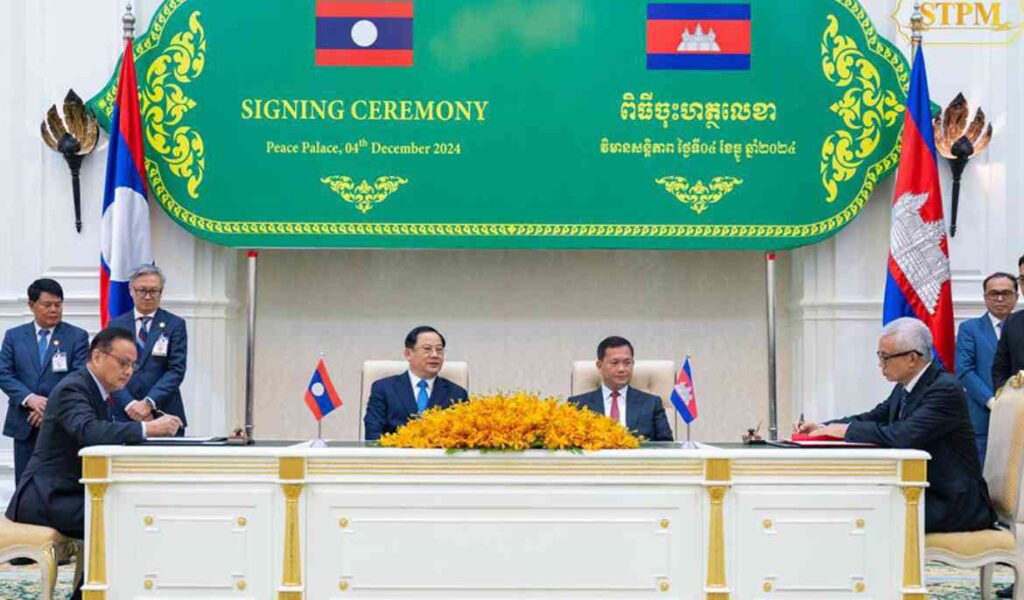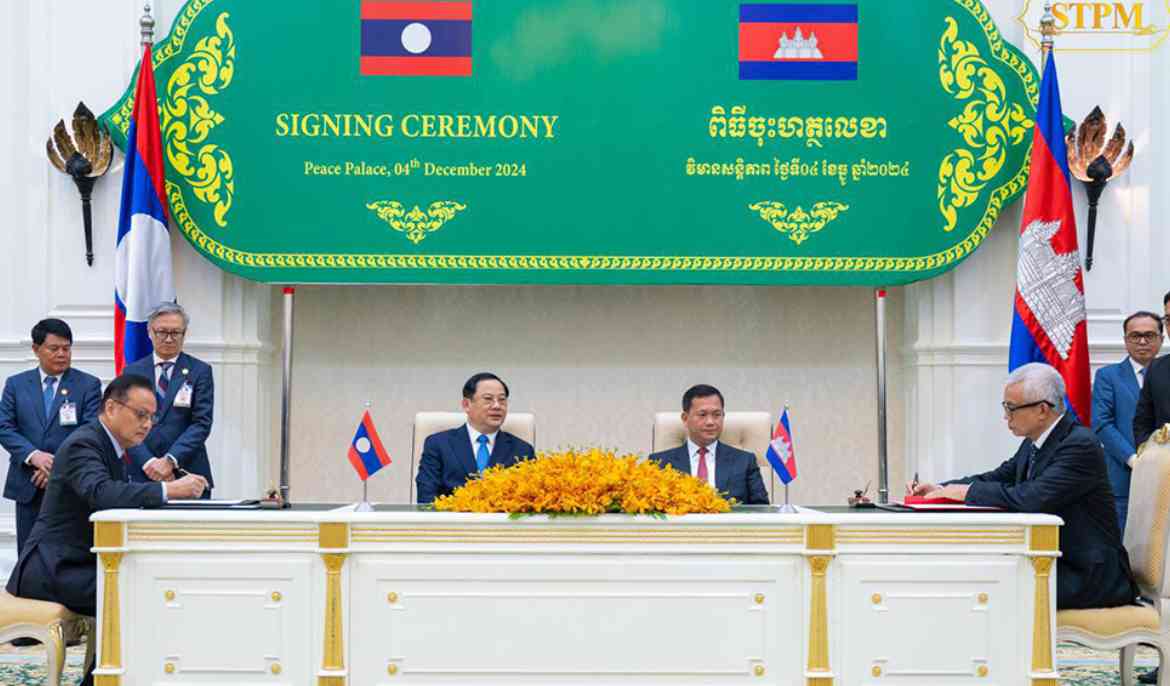Trade activity between Cambodia and Laos is expected to grow after the two governments signed a double taxation agreement (DTA) aimed at addressing income tax issues and preventing tax evasion, despite the currently modest trade volume between the neighbouring countries.
The agreement was signed on December 4 in Phnom Penh by Minister of Economy and Finance Aun Pornmoniroth and his Lao counterpart Santiphab Phomvihane, under the chairmanship of Prime Minister Hun Manet and Lao Prime Minister Sonexay Siphandone.
This marks Cambodia’s 12th DTA, following agreements with Singapore and Thailand (effective January 1, 2018), China and Brunei (January 1, 2019), Vietnam and Hong Kong (January 1, 2020), Indonesia and Malaysia (January 1, 2021), South Korea (January 1, 2022) and Macao and Turkey (January 1, 2024). The country is also negotiating DTAs with Japan, Myanmar, Morocco, the United Arab Emirates (UAE), France and Qatar.
Economist Hong Vanak from the Royal Academy of Cambodia described the agreements as mutually beneficial, noting the extensive negotiations preceding their signing. While acknowledging that tax exemptions could slightly reduce government revenue, he highlighted the boost they provide for cross-border investment.
Vanak emphasised that tax concessions are critical for facilitating economic cooperation and promoting trade and investment between neighbouring nations.
“Exempting or reducing taxes is a key factor for investors,” Vanak explained. “Eliminating double taxation reduces costs, promotes exports and enhances competitiveness in international markets.”
Pornmoniroth had previously said that the agreement involves a division of tax rights between the parties, where one country can apply certain aspects of local laws and tax codes. He noted that in the initial phase of implementation, it may impact the tax revenue of both countries due to the reduction of withholding tax rates for non-residents and the allocation of tax rights on specific income types to the residence country.
However, he emphasised that the DTA will offer numerous benefits, including attracting and promoting international investment and trade due to greater clarity, transparency and fairness in taxation, increasing the tax base and improving capital flows due to the attraction of lower withholding tax rates on interest and dividends.
The minister highlighted that it will also allow for the transfer of technology and expertise through provisions on technical services and subsidies, protect foreign investors and strengthen international cooperation on tax issues, particularly in preventing and combating tax evasion through information exchange.
During the ceremony, the two countries also formalised two memoranda of understanding (MoUs) on cooperation in the agriculture and arts and culture sectors.
According to the General Department of Customs and Excise (GDCE), the value of trade between Cambodia and Laos remains modest, with imports from Laos worth about $185.13 million during the first 10 months of 2024, marking a 14.4% increase compared to the same period in 2023. Meanwhile, exports to Laos remain minimal.
In terms of tourism, the number of Lao visitors in the first 10 months of 2024 reached 282,377, down 3.8% year-on-year. This accounts for approximately 3% of the total 5.37 million foreign tourists during the period.



